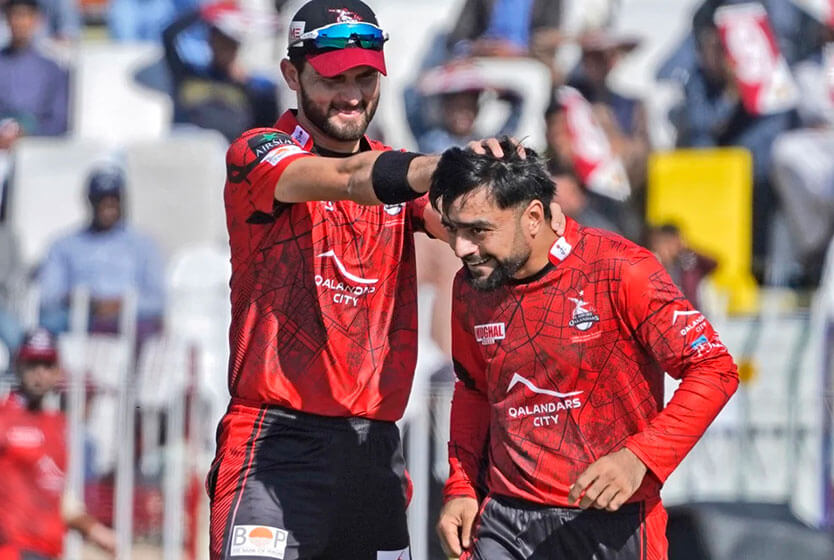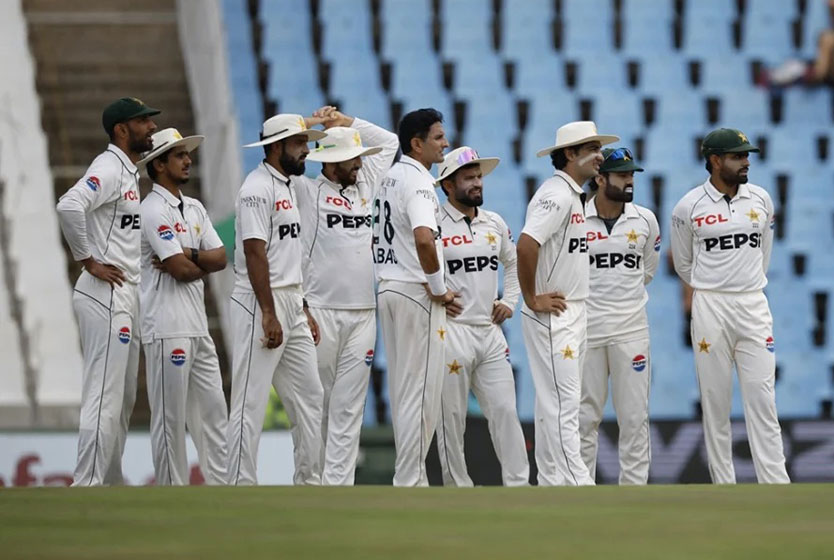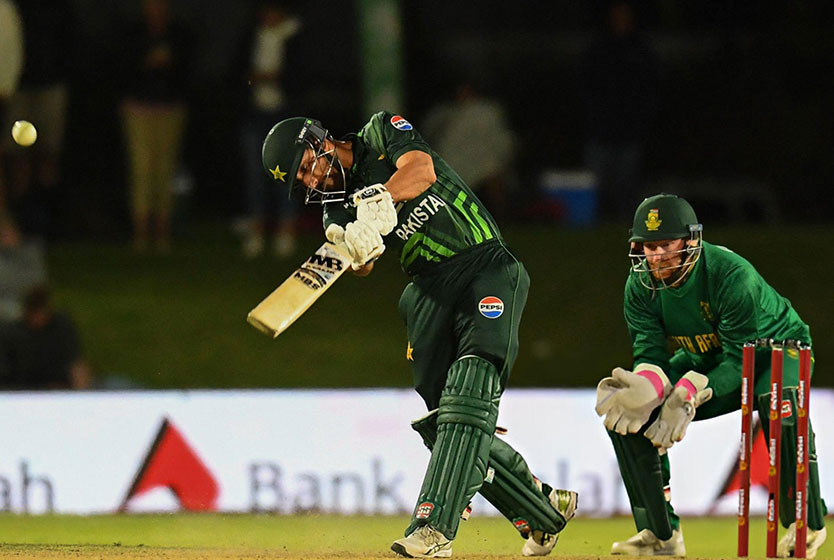
This Too Shall Pass?
“This too shall pass”— or will it? a question posed about Pakistan cricket. Having recently returned from an incredibly disappointing T20 World Cup campaign in which they lost to long-time foe and rival India, and even more shockingly, losing to a brilliant and disciplined USA side, you read that correctly, they failed to advance to the tournament’s Super 8 stage.
Pakistan was on the verge of winning both games but threw them away in a dramatic and sloppy fashion. You don’t have to be a genius to predict the response from Pakistan’s often temperamental but highly enthusiastic (and unrewarded fans) and let’s not forget media critics, all with their own nuanced responses, ranging from the moderate shouts of—“Sack the captain!”, or the more extreme kind, too rude to repeat— you get the idea. Aatif Nawaz, a BBC cricket commentator, and not-so-secret Pakistan fan, was blunt about the campaign: “Pakistan seemed to lack that mental strength, that killer instinct to get over the line. It’s an area where India, in particular, have excelled in recent years,” according to Nawaz.
In the space of a few short days, they went from heroes to villains; Pakistan cricket has always been its own worst enemy. As former Team coach and then Team Director Mickey Arthur more than once said, “I continually witness Pakistan cricket nailing itself in the foot.” Nothing better exemplifies this chronic feature than the title of esteemed cricket writer and author Osman Samiuddin’s book on Pakistan cricket, “The Unquiet Ones.” You could even say Pakistan as a society thrives on organized chaos, something its cricket team does admirably well to emulate. Never a dull day, whether for logical or nonsensical reasons – mostly the latter.
Let’s start with inconsistent leadership and team management – Pakistan has had frequent changes within their coaching setup, and the captaincy hasn’t been exempted either, just enough to cause a stir and potentially function as the catalyst for current performances. These inconsistencies have made it difficult to implement long-term strategies and build a cohesive team culture. Babar relinquished the captaincy under Zaka Ashraf, only for him to regain it under current incumbent chair Mohsin Naqvi – one could, and would have felt for Shaheen Afridi. Then again, after the 4-1 drubbing by a rather depleted New Zealand side, a reactive measure was par for the course – it is Pakistan, after all.
If you consider the number of coaching appointments, not just the head coach, since the 2022 World Cup, approximately 19 coaches (give or take!) have had one role or another within the setup – some multiple times. Surely, these inconsistencies would make it difficult to formulate and implement any long-term strategies, let alone create a cohesive team culture.
Pakistan needs to establish stability in team management; the respective appointments of Gary Kirsten (white-ball) and Jason Gillespie (red-ball) seem to be welcome steps in the right direction, with former Pakistan player Azhar Mahmood serving as assistant head coach for both, also vital towards bridging the cultural gap. If need be, appoint or groom a long-term captain for each format – someone resilient enough to avoid distractions and be able to deal with issues on and off the pitch in a professional and confident manner. Importantly able to impose authority and not be afraid of innovation, along with the ability to make assertive decisions. One could say from recent results that captain(s) have been guilty of being too one dimensional, overtly lacking the temperament to make simple tactical decisions. There is a requirement for continuity, implementation, and execution for a clear vision, one which will help introduce a stable and healthy environment for players to flourish and develop their skills – which currently appears nonexistent.
Off-field controversies and scandals – The Pakistan cricket team in the past has been plagued and surrounded by numerous on/off-field issues, disciplinary problems, and alleged infighting within the team, distractions which have taken the focus away from on-field performance and player development. Infighting is nothing new; I recall how one member of the mercurial 90s team once told me how they fought among each other like unruly children during one particular World Cup campaign. Nevertheless, once on the field, none of that mattered – for the duration of the game, anyway! The spot-fixing saga in 2010 is a particularly dark chapter in the book of Pakistan cricket history, with what transpired on the field and then took a nasty turn off it, and the captain and two of his main bowlers ending up in British jails – not the tour they were expecting.
The PCB needs to take stringent measures to curb indiscipline over the alleged infighting and groupings within the team. A strict code of conduct and a strong integrity framework should be in place – not only applicable for the players but everyone at the PCB, as dressing room talk often filters its way to some of the inquisitive local press – a majority of who are desperate in the quest for ratings; of course, not worrying about authenticity though enough to create unwanted headlines on Pakistan’s numerous cricket TV shows. Former wicketkeeper and captain Rashid Latif stated, “To eliminate ‘grouping culture,’ the players must respect each other as professionals and realize the fact they’re all representing Pakistan, not a club side, and playing for the same goals.”
Lack of domestic structure and talent pipeline – Pakistan’s domestic cricket system has struggled to consistently produce high-quality players ready for the international stage. There is a need to invest more in grassroots cricket development and create pathways for young talent to emerge. A regional format was bought in at the insistence of former player and Prime Minister Imran Khan, blocking some natural pathways to the higher levels. Six teams may work in Australia, a country that has a population of nearly 27 million. However, Pakistan’s population is nearly ten times that number.
Ehsan Mani, a former Chairman, and Wasim Khan, a former PCB CEO, implemented the regional structure. Khan advocated giving it five years to flourish before reaping the rewards. Many former players and ex-administrators inevitably complained, including those who were now out of a job and a comfortable monthly stipend. After (another) change of chair, the board re-imposed the 2014 constitution (as well as employees) and, in doing so, reverting back to department cricket and abolishing the unique regional six-team structure – according to some, a regressive and illogical move, one which demonstrated the lack of determination to move forward.
Revamp the domestic structure – again, find a working regional model, one that is logistically viable for a country the size of Pakistan, one that isn’t treated like an employment bureau, and more importantly one that produces and develops talent. Investing heavily is key to redeveloping its domestic cricket ecosystem, including upgrading infrastructure (currently in progress for the Champions Trophy to be held in 2025), also attaching importance to coaching certification. For example, aligning the criteria and syllabus with those of other cricket nations, so as not to create a false sense of equivalence and an extensive gap in knowledge.
Creating more competitive red-ball and white-ball tournaments – Saj Sadiq, Chief Editor of PakPassion and a very prominent voice on Pakistan cricket over the last 25 years, stated, “Your pathway for producing and nurturing talent shouldn’t solely be reliant on the PSL. Under-19 players should be afforded opportunities in major tournaments, providing them with sufficient experience and helping them to develop and enhance their skills. Organizing more ‘A tours’ is an essential factor for players on the verge of international level, helping them to acclimatize and adapt their game in foreign conditions.”
(At the time of writing, Pakistan have announced a tour for its A team, also known as the Shaheens (Eagles) – to Australia to play two 4-day matches against a Bangladesh A side, as well as participate in two 50-over games against a local side then participating in a nine-team T20 tournament.)
Pakistan has failed to win a final of any major ICC competition since the Champions Trophy at the Oval in 2017, coming eerily close in 2022 when having reached the T20 World Cup final in Australia – only to lose against a spirited England side. If Pakistan are to create and improve on their legacy, then they will need to expand on their three ICC wins. Start by first setting clear targets for the team in major ICC events; this type of preparation will require meticulous planning, strategic team building, and ensuring the team is well-prepared and mentally robust.
Finally, even Dr. Who and James Bond fans would struggle to comprehend the number of times the chairperson has metamorphosized. Critics will consider this frequent fluctuation to be one of the most harmful factors, attributing it to the team’s general morale, creating uneasiness, insecurity, and instability among the players. For some, it was a vanity endeavor, while others sought to outperform their predecessors. Mohsin Naqvi is the most recent addition to the post, and he appears to have a more no-nonsense approach than some of his contemporaries, though the jury is still out.
After their dismal performance in the T20 World Cup, the expectations for wholesale change are at an all-time high. Reforms shouldn’t be reactive; nonetheless, Pakistan cricket is in need of restructuring, and someone needs to take the proverbial bull by the horns. Strong governance, accountability, and diligence are requisite to move forward.
Nonetheless, the players shouldn’t be totally absolved of everything; their performances haven’t exactly set the world alight. Pakistan can compete on equal footing with the best sides in the world. However, talent and ability alone can’t carry you; long gone are the days of your Wasim Akrams, Waqar Younis’s, and Saeed Anwars. The sooner Pakistan realize this, the sooner they can start their ascent, not forgetting discipline and application are essential ingredients to the mix. Once labeled as unpredictable, this side has become somewhat overly predictable.
By addressing these important areas, Pakistan can aim to restore its place as one of the top cricketing countries. It won’t change overnight, nor should the fans and critics expect it to do so, but with luck and fortitude – as Babar Azam once told Virat Kohli (who at the time was suffering a slump in form): “This too shall pass.”
Amer Malik is a UK-based freelance writer published in The Financial Times, Sport360, and Wisden.







Leave a Reply